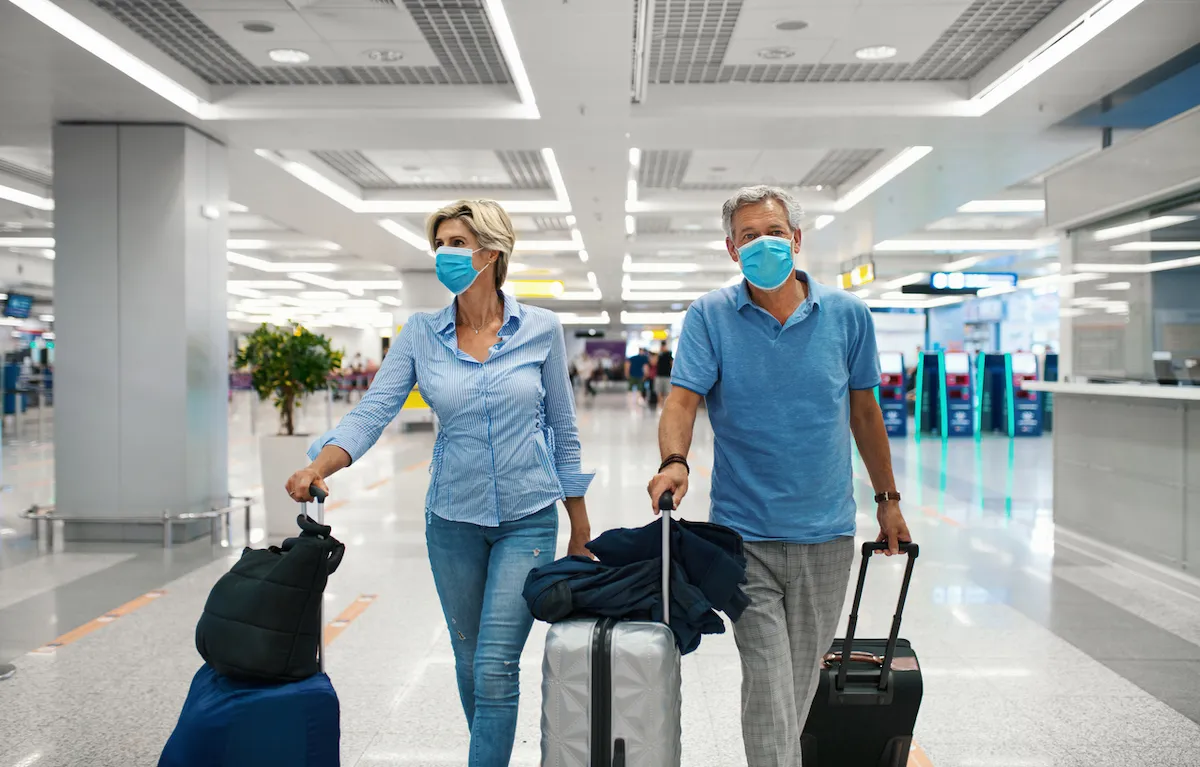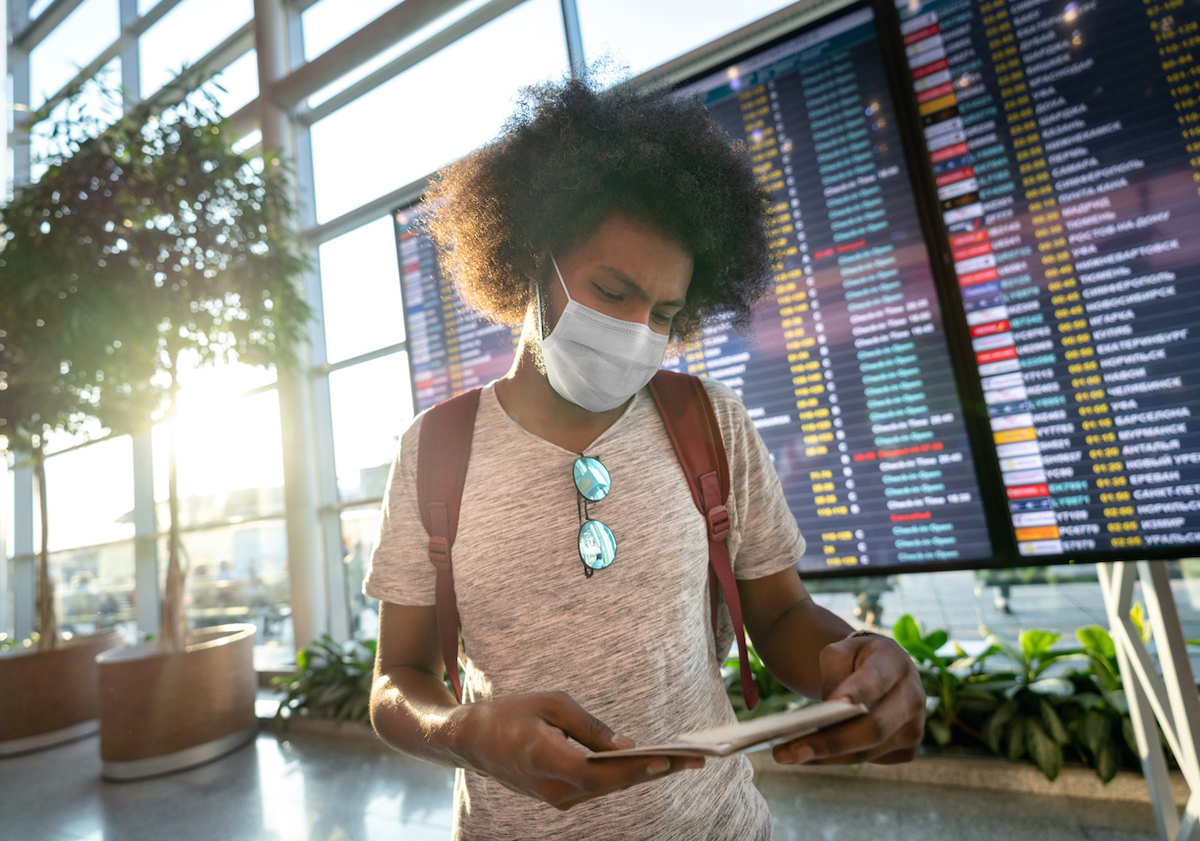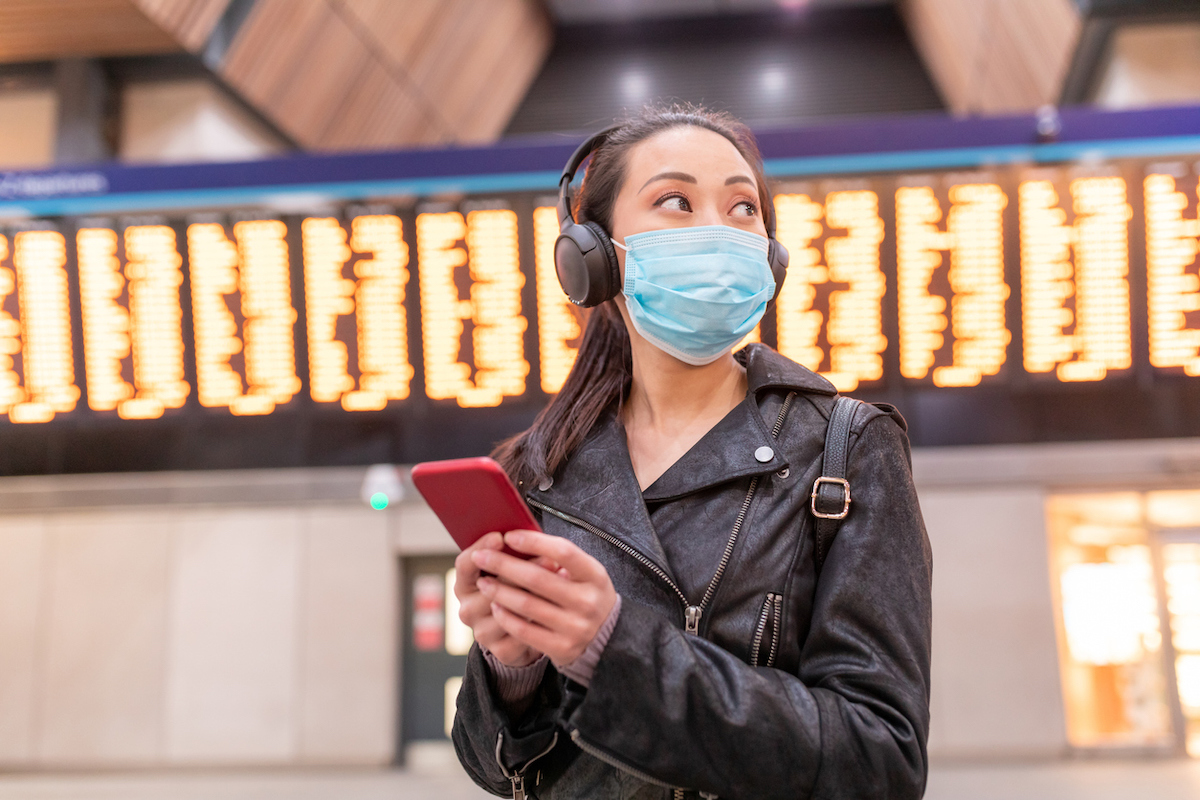Government officials are encouraging American citizens not to take trips abroad. The advisory comes as President Joe Biden and his new administration have taken a sharper focus on limiting international travel in order to curb the spread COVID-19 and its highly contagious mutated strains that have developed in countries such as Brazil and the U.K. “The Department of State is committed to helping U.S. citizens overseas who find themselves in dire situations, but that assistance is likely to be limited,” Ian Brownlee, Bureau of Consular Affairs Acting Assistant Secretary at the U.S. State Department, said during a Jan. 26 press briefing. “Our main message to U.S. citizens considering travel abroad remains the same: Seriously reconsider going overseas right now. If you’re overseas right now, it’s going to be harder to come home for a while. So be informed and be prepared.” And for another change that just went into effect, check out why The CDC Is Requiring You to Do This as of Tuesday. The latest travel advisory from the State Department arrives on the heels of a new travel mandate from the U.S. Centers for Disease Control and Prevention (CDC). As of Jan. 26, all air travelers entering the United States from abroad are required to test negative for COVID-19 within three days prior to their flight or prove they’ve recovered from the virus. The order requires airlines to confirm the test results and to deny boarding to anyone who fails to provide documentation. “This rule applies to all travelers age two and over, including U.S. citizens,” Brownlee advised. “This means that U.S. citizens who choose to go abroad, whether it’s for a holiday or a genuine emergency, everyone needs to be prepared to be potentially seriously disrupted in their trips.” And for another advisory issued by the leading health agency, check out The CDC Just Issued This Horrifying COVID Warning. The State Department warned that any decision to leave the country should not be made lightly, as reentry to the U.S. could become long, complicated, and potentially costly if they were to become infected with COVID while traveling. Currently, the CDC has designated all but a handful of countries at “very high” risk levels of contracting the novel coronavirus and has specifically advised against travel into Mexico. “If you were to test positive for COVID-19 while overseas, you would need to postpone your trip back to the United States, potentially for several weeks,” Brownlee warned. “All travelers should have a plan B: Where would you stay? How would you pay for that extended stay? What would happen at home if you couldn’t get back to work, couldn’t get back to take care of your children, or any of your other responsibilities?” And if you want to know what could help you avoid a severe case, check out If You Have This in Your Blood, You May Be Safe From COVID, Study Says.ae0fcc31ae342fd3a1346ebb1f342fcb Recently, Biden also issued an executive order reviving entry bans for non-U.S. citizens or permanent residents arriving from the U.K., Ireland, Brazil, and a list of 26 European countries that currently allow open travel into their borders, beginning Jan. 30. The announcement also added an additional ban on travelers who have been to South Africa in the past 14 days, Reuters first reported on Jan. 24. The new restrictions are a response to the fast-spreading U.K. variant, which is now in 24 U.S. states; the Brazilian variant, which was just discovered in the U.S. this week; and the South African strain, which is also causing concern but has not yet been discovered in the States. “We are adding South Africa to the restricted list because of the concerning variant present that has already spread beyond South Africa,” Anne Schuchat, MD, the CDC’s principal deputy director, told Reuters on Jan. 24. Schuchat said that the agency was “putting in place this suite of measures to protect Americans and also to reduce the risk of these variants spreading and worsening the current pandemic.” And for more on why health officials are so concerned about this mutation, check out Dr. Fauci Says This Is What’s “Disturbing” About One New COVID Strain.



